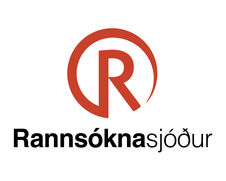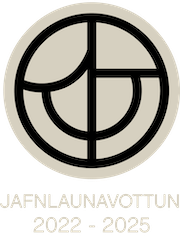Þróun og árangursmat á hugrænni atferlismeðferð við starfrænum einkennum sem skerða vinnugetu - verkefni lokið
Fréttatilkynning verkefnisstjóra
Um þriðjungur notenda heilsugæslu greinir frá þrálátum líkamlegum einkennum sem eiga sér ekki þekktar líffræðilegar orsakir. Á Íslandi er skortur á árangursríkri meðferð við slíkum einkennum en sýnt hefur verið fram á árangur hugrænnar atferlismeðferðar við meðferð tiltekinna tegunda þessara óútskýrðu líkamlegu einkenna.
Markmið verkefnisins, „Development and testing of cognitive behavioural therapy for persistent physical symptoms",var að þróa og árangursprófa ósérhæfða hugræna atferlismeðferð sem tekur á sameiginlegum og sértækum þáttum sex algengra gerða þrálátra líkamlegra einkenna (svefnvanda, þreytu, verkjum, meltingartengdum vanda, vanda frá hjarta og brjóstholi og svima og svipuðum vandamálum). Meðferðin er átta vikna hópmeðferð einu sinni til tvisvar í viku, alls 11 skipti. Verkefninu var skipt í tvo hluta, forprófun og aðalprófun. Forprófun var gerð með einliðasniði með þremur þátttakendum en aðalprófun var slembuð samanburðarrannsókn með 36 þátttakendum í tilrauna- og samanburðarhópi. Tilraunahópurinn fær meðferðina, en samanburðarhópurinn er biðlistahópur sem fær meðferð sem þeir hefðu venjulega fengið hjá heimilislækni (treatment-as-usual). Báðir hópar svara spurningalistum fimm sinnum, við upphaf meðferðar, um miðbik meðferðar, við lok meðferðar, þremur mánuðum og sex mánuðum eftir meðferð. Aðalfylgibreyta rannsóknarinnar er færniskerðing mæld með Work and Social Adjustment Scale (WSAS).
Upprunalega átti að vísa þátttakendum í meðferð með aðkomu VIRK Starfsendurhæfingarsjóðs, en vegna breytinga í kjölfar heimsfaraldursins var leitað til Heilsugæslu Höfuðborgarsvæðisins um að vísa sjúklingum í meðferðina.
Af rannsókninni hlýst aukin þekking á tengslum þrálátra líkamlegra einkenna við geðræn einkenni, lyfjanotkun og notkun á heilbrigðisþjónustu. Vöntun er á hagkvæmri gagnreyndri meðferð við þrálátum líkamlegum einkennum og reynist hún árangursrík verður handbók hennar gerð aðgengileg.
English:
About one-third of primary health care users report persistent physical symptoms (PPS) that have no known biological cause. In Iceland, there is a lack of an effective treatment for such symptoms, but the effectiveness of cognitive behavioural therapy has been demonstrated in the treatment of certain types of these symptoms. The goal of the project, "Development and testing of cognitive behavioural therapy for persistent physical symptoms", was to develop and test the effectiveness of a transdiagnostic cognitive behavioural therapy that addresses general and specific aspects of six common types of PPS (sleep problems, fatigue, pain, digestive problems, cardiothoracic problems and dizziness and similar problems). The treatment is an eight-week group treatment comprising, a total of 11 sessions. The project was divided into two parts, a single-case experimental design with three participants, and a randomized controlled trial with 36 participants in an experimental and a control group. The experimental group receives the treatment and the control group is a no-restriction waitlist. Both groups fill in questionnaires five times, at the beginning of treatment, in the middle of treatment, at the end of treatment, and three months and six months after treatment. The main outcome variable study is functional impairment measured with the Work and Social Adjustment Scale (WSAS).
The project was approved by the Scientific Ethics Committee of Iceland (Vísindasiðanefnd) and received a research grant from Rannís. Originally, the participants were to be referred to the treatment with the involvement of the VIRK Vocational Rehabilitation Fund, but due to changes at VIRK following the pandemic, other participants were needed. An agreement was reached with the Primary Health Care of the Capital Area to refer patients to the treatment.
This project will increase our knowledge of the relationship between PPS and mental health symptoms, medication and health care use. There is lack of cost-effective, evidence-based treatment for patients with PPS and if the treatment turns out to be effective, the manual will be made publicly available.
Information on how the results will be applied:
The results have and will be published in international scientific papers and treatment handbooks for patients and therapists. The treatment protocol will be applied by our co-workers in the UK. In addition, the protocol will be adapted for patients with long term physical conditions (medically explained), such as long COVID and MS. The research group has already received enquiries from patient organisations about whether the treatment can be made available to their members.
A list of the project’s outputs:
Published papers:
1. Sigrún Ólafsdóttir Flóvenz, Elín Broddadóttir, Sturla Brynjólfsson, Agnes Sigríður Agnarsdóttir, Paul M. Salkovskis og Jón Friðrik Sigurðsson (2021). Tengsl þrálátra líkamlegra einkenna við einkenni þunglyndis og kvíða hjá einstaklingum sem leituðu til heilsugæslu. Læknablaðið (The Icelandic Medical Journal), 107(2), 67-73. Open access, https://www.laeknabladid.is/media/2021-02/f01.pdf.
2. Broddadóttir, E.; Flóvenz, S.Ó.; Gylfason, H.F.; Þormar, Þ.; Einarsson, H.; Salkovskis, P.; Sigurðsson, J.F. (2021). “I’m So Tired”: Fatigue as a Persistent Physical Symptom among Working People Experiencing Exhaustion Disorder. Int. J. Environ. Res. Public Health, 18, 8657. Open access, https://www.ncbi.nlm.nih.gov/pmc/articles/PMC8392333/pdf/ijerph-18-08657.pdf.
3. Flóvenz, S.Ó., Salkovskis, P.M., Svansdóttir, E., Karlsson, H.D., Andersen, K. and Sigurðsson, J.F. (2023). Non-cardiac chest pain as a persistent physical symptom: Psychological distress and workability. Int. J. Environ. Res. Public Health, 20, 2521. Open access, https://doi.org/10.3390/ijerph20032521.
Papers submitted or under preparation:
4. Flóvenz, S.O., Salkovskis, P.M., Gregory, J.D., and Sigurðsson, J.F. Persistent Physical Symptoms and mental health problems among individuals seeking work rehabilitation. Under review.
5. Flóvenz, S.O., Salkovskis, P.M., Sigurðsson, B.H., Broddadóttir, E. and Sigurðsson, J.F. Predicting work disability and the success of work rehabilitation: PPS, psychological distress and demographics. Submitted.
6. Salkovskis, P.M. Gregory, J.D, Flóvenz, S.Ó, Broddadóttir, E. and Jón Friðrik Sigurðsson. Managing ‘Persistent Physical Symptoms’ in adults in primary care: Prevalence, co-morbidity with psychological distress and willingness to engage in treatment. In preparation.
7. Broddadóttir, E., Flóvenz, S.Ó., Carstensdóttir, G., and Sigurðsson, J. F. The interplay between exhaustion disorder, persistent physical symptoms and emotional distress in Icelanders seeking work rehabilitation. In preparation.
8. Flóvenz, S.Ó., Broddadóttir, E., Salkovskis, P., Gústavsson, S.M. Valdimarsdóttir, H., and Sigurðsson, J.F. Development of a transdiagnostic cognitive behavioural therapy intervention for persistent physical symptoms: Single case series pilot study. In preparation.
PhD Thesis:
Sigrún Ólafsdóttir Flóvenz (2021). Predicting Work Disability and the Outcome of Vocational Rehabilitation: The Role of Persistent Physical Symptoms and Mental Health. Doctoral Thesis (PhD) in Psychology, Department of Psychology, School of Social Sciences, Reykjavík University. Supervisors: Paul Salkovskis and Jón Friðrik Sigurðsson.
MSc theses:
Sigríður Jóna Sigurjónsdóttir (2018). Psychometric Evaluation of the Icelandic Version of the Insomnia Severity Index (ISI) and the Chalder Fatigue Questionnaire (CFQ). Reykjavik University. Supervisors: Sigrún Ólafsdóttir and Jón Friðrik Sigurðsson.
Sturla Brynjólfsson (2018). Medically unexplained symptoms in primary health care. Reykjavik University. The study was carried out at the Primary Health Care at the Capital rea of Iceland. Supervisors: Sigrún Ólafsdóttir, Agnes Agnarsdóttir (representative of the Primary Health Care) and Jón Friðrik Sigurðsson. The results were published in the Icelandic Medical Journal 2021 (see above).
Þórey Þormar (2018). The relationship between exhaustion, work-related experience and working conditions among employees in different occupations. Reykjavik University. The study was carried out in co-operation with BHM (An association of professional organizations of individuals that are employed by central government institutions, local government, and the broader labour market). Supervisors: Sigrún Ólafsdóttir, Hjalti Einarsson (representative of BHM) and Jón Friðrik Sigurðsson. The results were published in an international journal in 2021 (see above).
Lilja Dögg Færseth Ólafsdóttir (2022). Long-COVID: Behavioural and emotional responses to symptoms. The study was carried out at Reykjalundur Rehabilitation in Mosfellsbær. Supervisors: Sigrún Ólafsdóttir Flóvenz, Elín Broddadóttir and Jón Friðrik Sigurðsson. Co-researchers: Paul Salkovskis, Gunnhildur L. Marteinsdóttir, Hjálmtýr Alfreðsson, Inga Hrefna Jónsdóttir and Karl Kristjánsson. Manuscript for an international scientific paper is in preparation.
Icelandic Student Innovation Fund Projects:
Guðrún Carstensdóttir (2020). Comparison of Persistent Physical Symptoms and Exhaustion Disorder as They Relate to Depression and Anxiety Symptoms. Supervisors: Sigrún Ólafsdóttir, Elín Broddadóttir and Jón Friðrik Sigurðsson.
Elín Broddadóttir (2023). Handbækur fyrir meðferð þrálátra líkamlegra einkenna (Manuals for the treatment of persistent physical symptoms). Supervisors: Jón Friðrik Sigurðsson, Sigrún Ólafsdóttir Flóvenz and Paul Salkovskis.
Hugræn atferlismeðferð við þrálátum líkamlegum einkennum: Þátttakendahandbók (Cognitive behavioral therapy for persistent physical symptoms: Participant manual). Work in progress.
Hugræn atferlismeðferð við þrálátum líkamlegum einkennum: Meðferðarhandbók (Cognitive behavioral therapy for persistent physical symptoms: A treatment manual). Work in progress.
Heiti verkefnis: Þróun
og árangursmat á hugrænni atferlismeðferð við starfrænum einkennum sem skerða
vinnugetu/Development and evaluation of a cognitive behavioural treatment for
persistent physical symptoms that cause work disability
Verkefnisstjórar: Paul Salkovskis og Jón F Sigurðsson, Háskólanum í Reykjavík
Tegund styrks: Verkefnisstyrkur
Styrktímabil: 2019-2021
Fjárhæð styrks kr. 55.961.000
Tilvísunarnúmer Rannís: 196395


